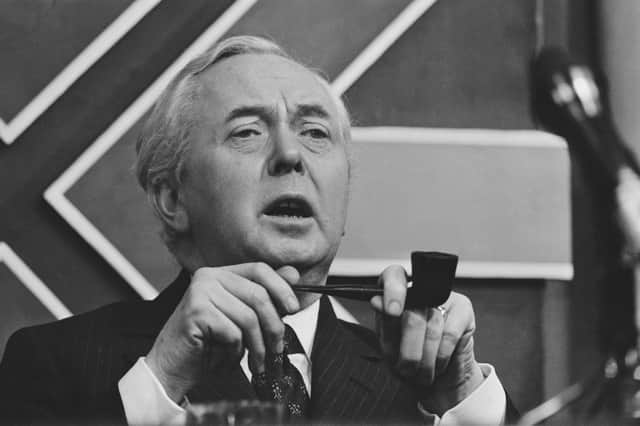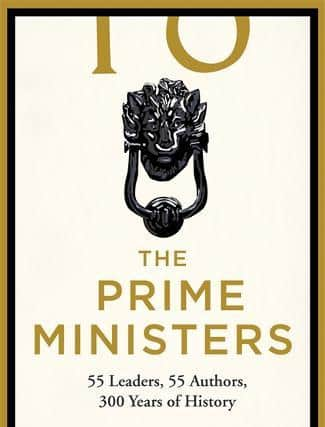Book review: The Prime Ministers, edited by Iain Dale


It is a most elegant hardback volume, with a gilded cover that looks a little like the famous front door of No. 10 itself; the ideal Christmas gift, perhaps, for friends who are fascinated by the detail of British politics over the last 300 years. Yet despite all that, there is something frustrating and even a little depressing about this collection of 55 essays, each by a different author, about the 55 Prime Ministers who have occupied the post since Sir Robert Walpole, generally recognised as Britain’s first Prime Minister, took office in April 1721.
At number six, for instance, there is the Earl of Bute, the first Scottish premier, subjected to routine abuse for his nationality, and remembered in a finely-written chapter by David Torrance. At number nine, there is the legendary William Pitt the Younger, in a chapter by Mark Garnett of Lancaster University, who all but inherited the premiership from his father at the age of 24, and led Britain into its long war against revolutionary France.
Advertisement
Hide AdAt number 17, we meet Spencer Perceval, the only Prime Minister to be assassinated in office, memorialised in a most entertaining and well-turned chapter by Lord Bellingham, a descendant of the assassin himself. There is the Duke of Wellington, the victor of Waterloo; and in a strikingly powerful chapter by Gerry Hassan, there is the great reformer Earl Grey, a quiet aristocrat who nonetheless steered through parliament the Great Reform Act of 1832, setting the UK on the road to something like parliamentary democracy, and preparing the stage for the reforming political titans of the Victorian age, from Peel to Gladstone.


And always, in the biographical details, there is the rhythmic sound of the British establishment at work, absorbing, defending, changing just enough to fend off radical rebellion; the aristocratic training-grounds of Eton, Oxford and Cambridge producing almost every Prime Minister between 1721 and 1900, and a House of Lords dominated by the landowning aristocracy swiftly sucking up the able but untitled, arranging their preferment and elevation, and conferring on them new titles in every generation.
In the 20th century, of course, all of that briefly seems about to change; men like David Lloyd George and Ramsay MacDonald, born in humble circumstances with no wealthy or aristocratic connections, appear in the ministerial lists, punctuated by more traditional figures like Chamberlain, Churchill and Attlee. In a notably passionate chapter, Anthony Seldon ranks Attlee as perhaps the most successful of all British Prime Ministers, the man whose government “created modern Britain” from the ruins of the Second World War; and thereafter, the one-nation Tory Harold Macmillan, and the grammar school boys Harold Wilson and Ted Heath, seemed to continue that evolution towards a more profoundly democratic and meritocratic society.
It’s one of the weaknesses of Dale’s chosen multiple-author format, though, that it lacks the sweep to explain what went wrong with that democratising momentum after 1979, and to analyse whether the British political establishment is still working as smoothly as ever to accommodate change and defuse dissent, or whether the reactionary spasm of Brexit, the dwindling of consent in Scotland, and the spectacle – in the second decade of the 21st century – of yet another pair of Old Etonian premiers, suggests a system drifting into sclerosis and decline.
In the absence of this kind of unifying vision and analytical edge, The Prime Ministers almost inevitably comes across as a complacent book, and a small-c conservative one, despite its wealth of enjoyable insights into three centuries of Westminster politics. And if there is a world elsewhere, now the grandeur of Empire has gone, this is not the book that aims to explore it; or to guess what future shape the British state might take, as the turbulent political currents of the 21st century begin to test it to its limits.
The Prime Ministers, edited by Iain Dale, Hodder & Stoughton, £25
A message from the Editor
Advertisement
Hide AdThank you for reading this story on our website. While I have your attention, I also have an important request to make of you.
The dramatic events of 2020 are having a major impact on many of our advertisers - and consequently the revenue we receive. We are now more reliant than ever on you taking out a digital subscription to support our journalism.
To subscribe to scotsman.com and enjoy unlimited access to Scottish news and information online and on our app, visit https://www.scotsman.com/subscriptions
Joy Yates, Editorial Director